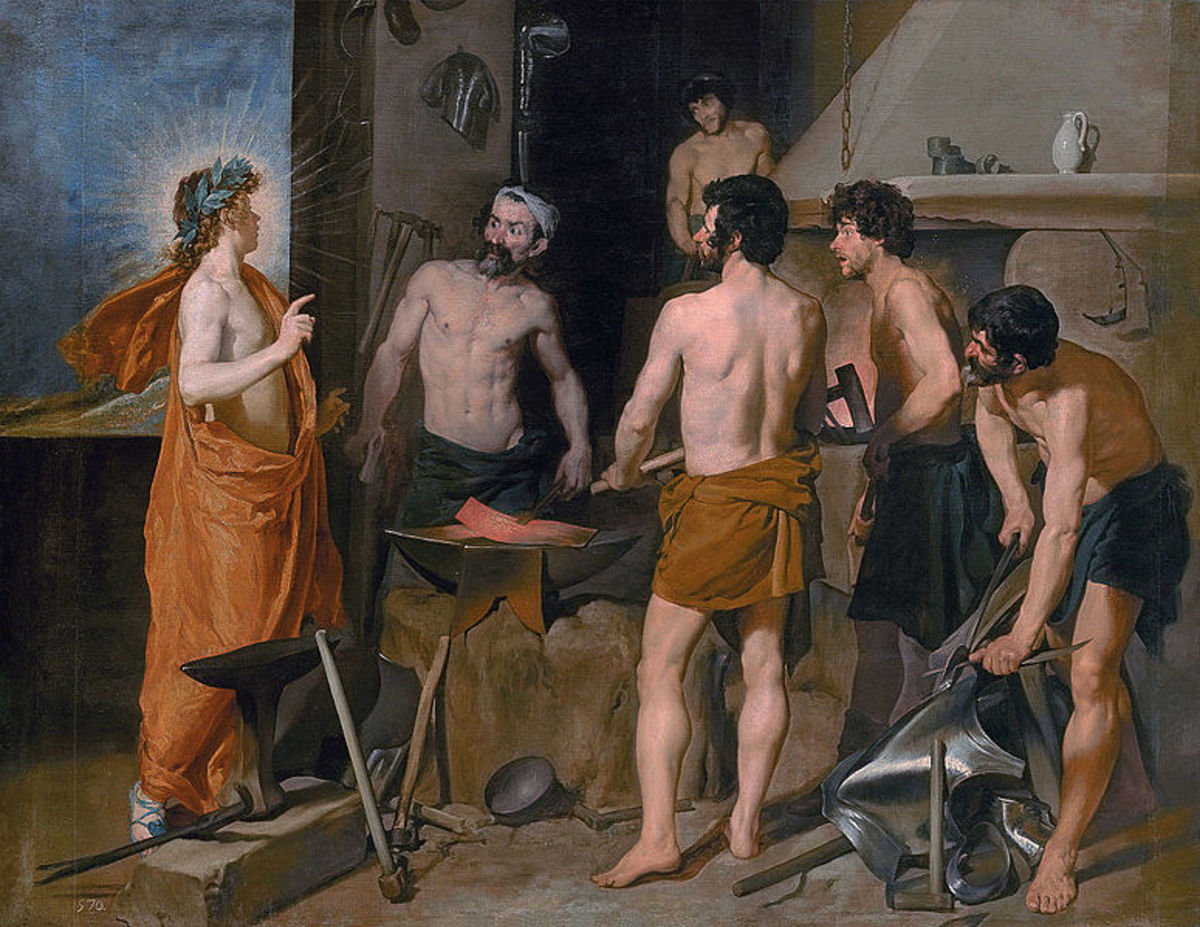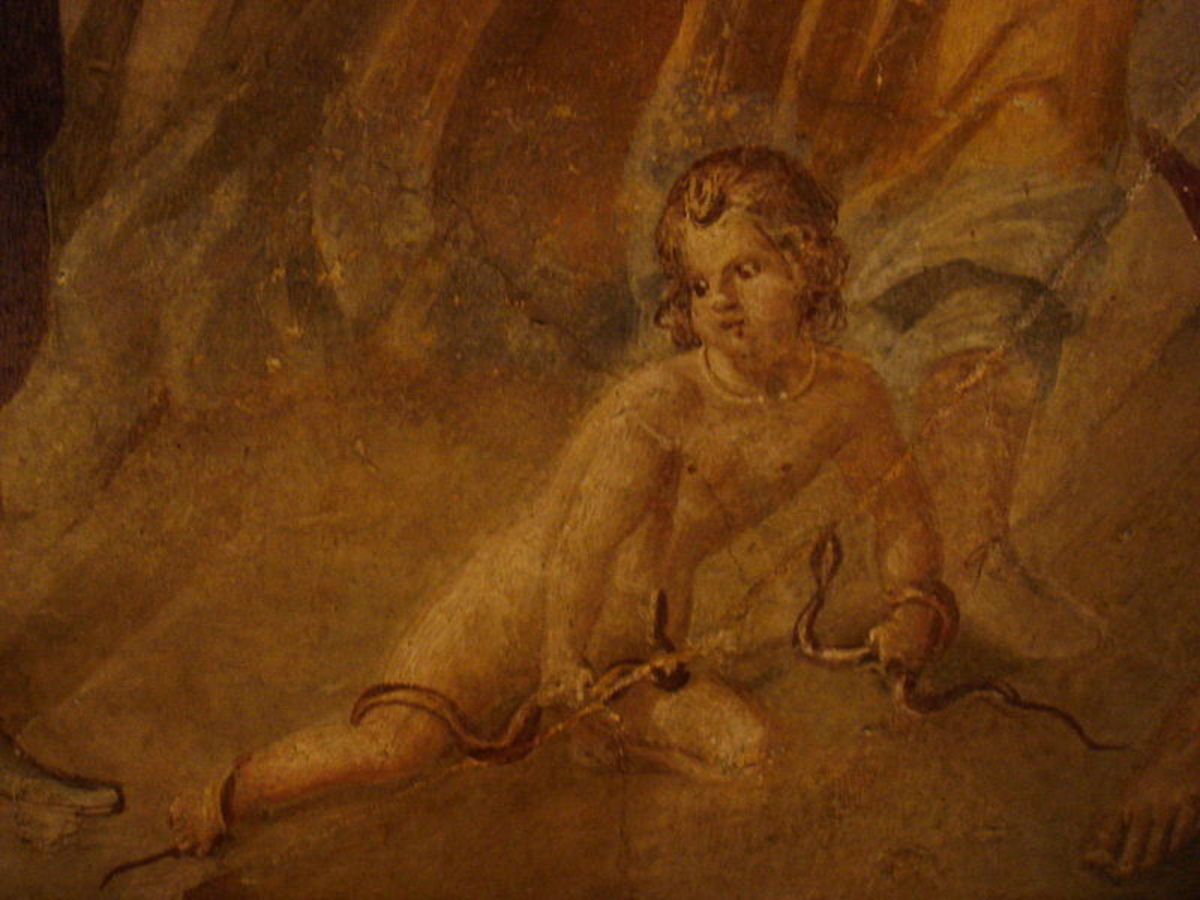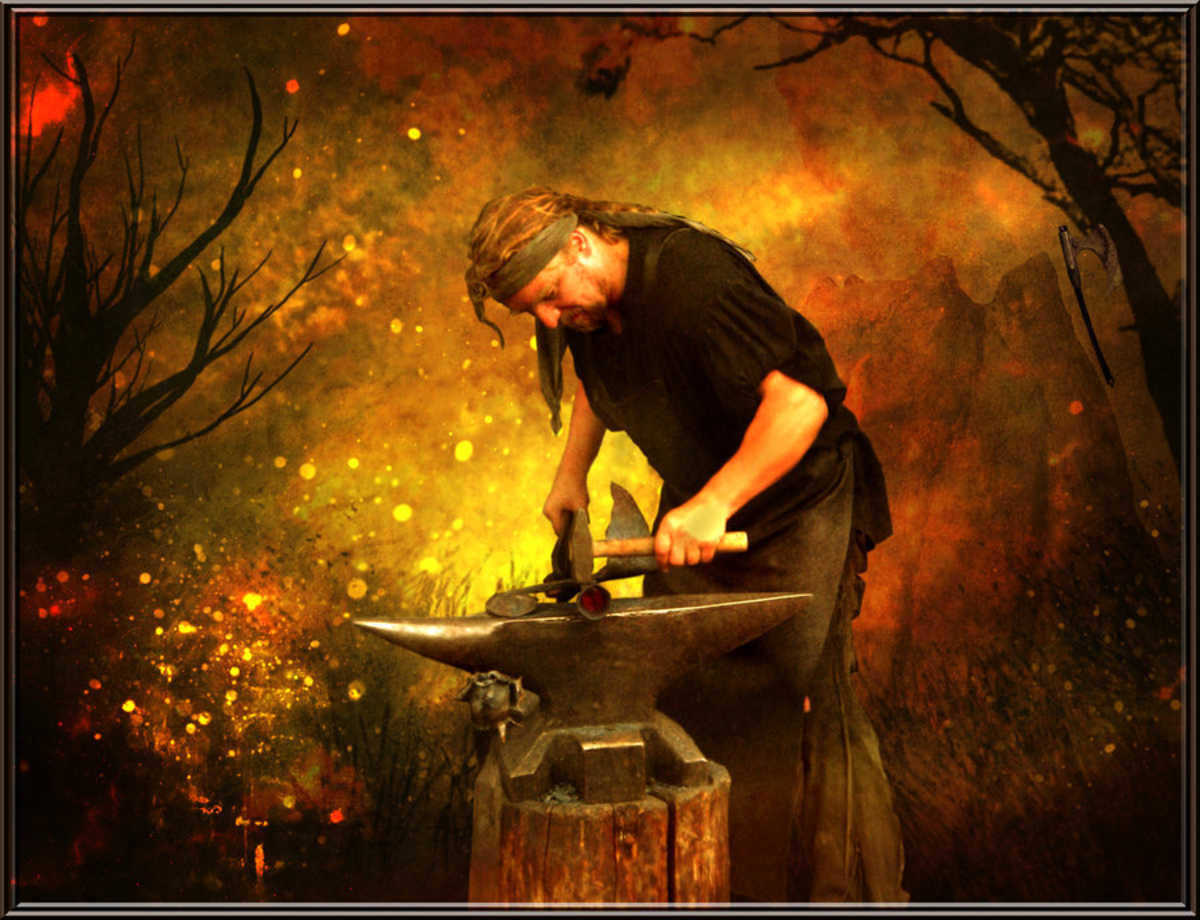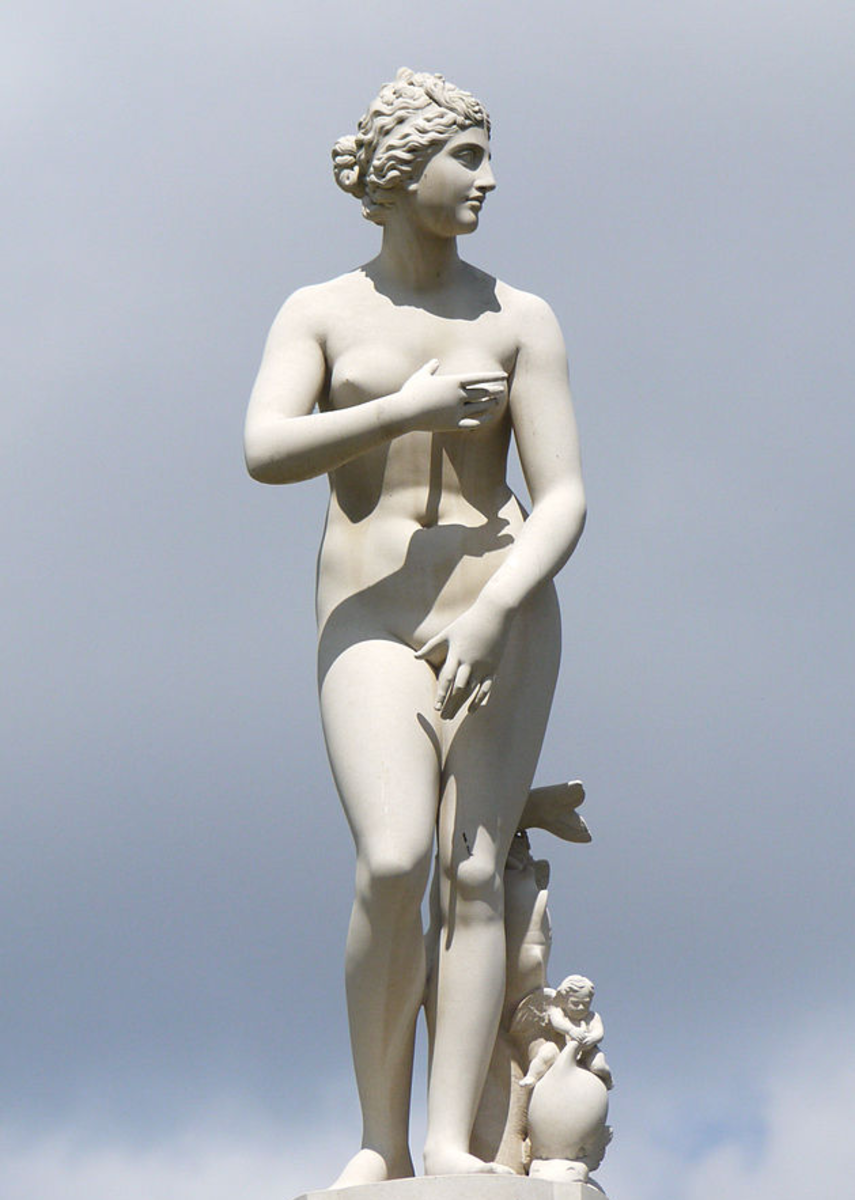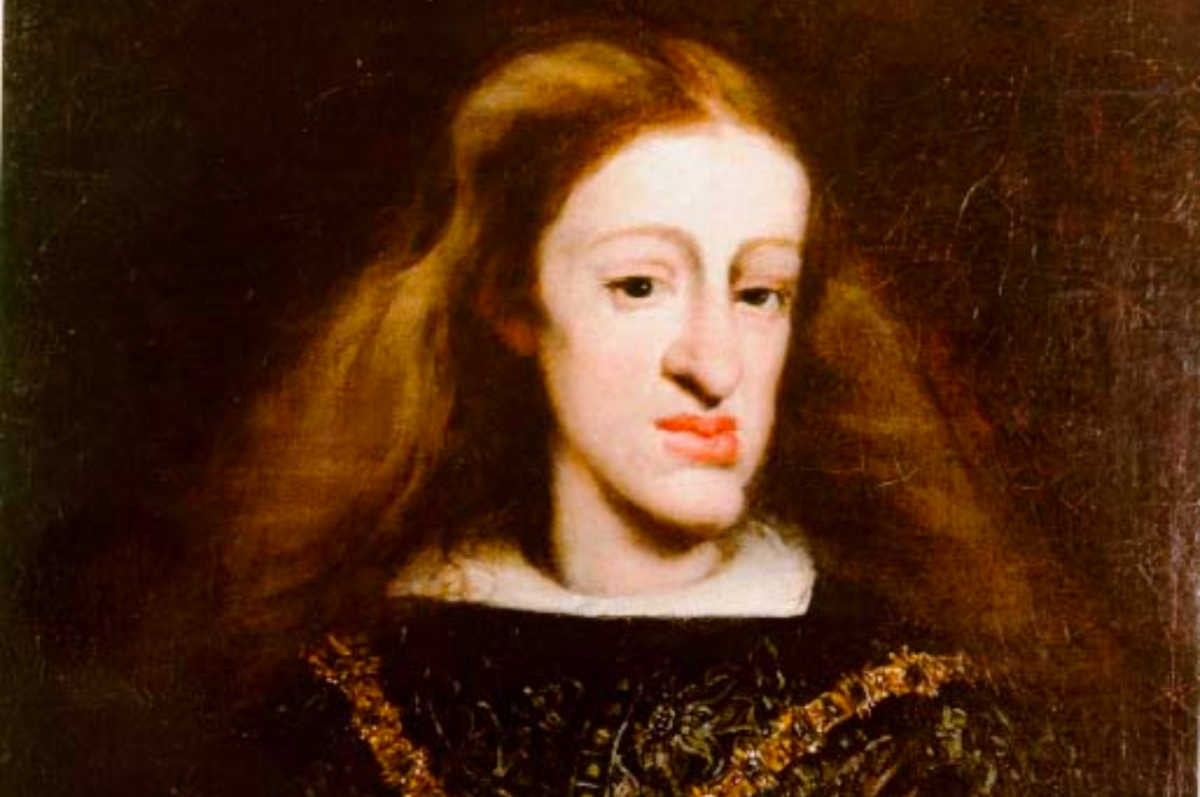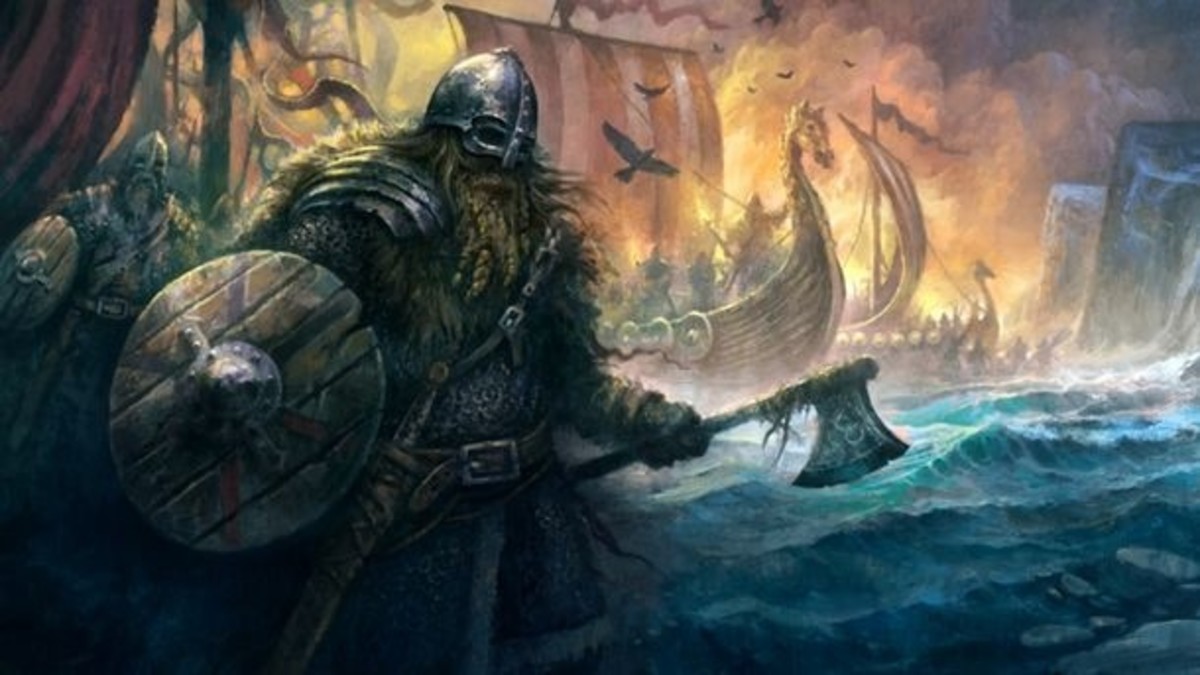The Smith of the Gods
Hard-working Hephaestus
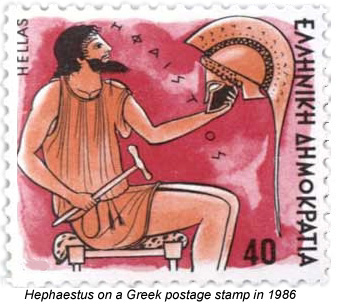
Not your usual Greek God
Hephaestus wasn't your usual Greek God. He didn't lie about on a couch gossiping with his chums while sipping nectar and nibbling on ambrosia, he had a full time job.
Another difference was his appearance. Unlike the others, he wasn't divinely handsome and beauteous of limb, indeed he fell a lot short of being considered remotely passable.
To put it plainly, he was downright ugly.
Thrown out of Olympus!
His feet were misshapen, his complexion hideous, he was so grotesque it was said that his mother threw him over a cliff when he was born.
Perhaps we shouldn't blame his mother, Hera, for it may have been his father, the mighty Zeus, who did the throwing. In any case, he was hurled down all the way from lofty Mt Olympus. That should have been the end of Hephaestus, but the little chap landed on the Island of Lemnos where he grew to be a master craftsman.
Later he moved on to Sicily and (some say), he is still there there today, hammering out his creations in the huge forge under the great mountain of Etna.
The Smoking Forge under Etna

Hephaestus takes revenge on Hera
Hephaestus was understandably angry with his mother for rejecting him, so he plotted a suitable revenge.
He wrought a beautiful throne for Hera to sit on. It was a triumph of his skills, a glorious cathedra to highlight her sovereignty, a delicate chair of shining gold that none could resist. It was also a trap.
As soon as Hera sat upon this beauteous throne, she was stuck fast!
The other Gods begged him to free her, becoming desperate enough to offer him a place in the exulted company on Mt Olympus. Hephaestus ignored their pleas.
How Aphrodite became the wife of a Smith
It was left up to Dionysus to save the day for Hera.
Dionysus, the indispensable god who invented wine, brought out a jug of his very best brew to entice Hephaestus into a cozy afternoon chat. The two of them proceeded to get drunk.
Hephaestus became inebriated enough to reconsider his revenge on Hera . He would free her, he said, on one condition - the most beautiful Aphrodite must become his wife!
There were cries of rage at this, all of the gods desired the lovely Aphrodite and declared it grotesque that she should marry an ugly little blacksmith. Hera, still helplessly trapped on her golden throne, agreed. No one seems to have asked Aphrodite.
Aphrodite
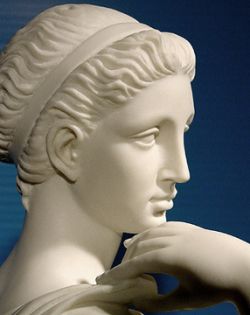
Hephaestus and Aphrodite
Aphrodite, who had been callously manoevered into an arranged marriage with the disfigured smith, began an affair with the vigorous Ares, the god of war.
All of the gods were amused and rather envious of the ugly little craftsman and his beautiful wife, so when Helios, the all-seeing Sun, spotted Aphrodite and her lover during one of their trysts, he couldn’t wait to inform Hephaestus.
The Master Smith planned a trap for the pair. While Aphrodite and Ares lay together in bed, Hephaestus crept up and ensnared them in an unbreakable, chain-link net of his own making. He then dragged the protesting couple all the way up to Mt Olympus and threw them at the feet of Zeus.
Ares
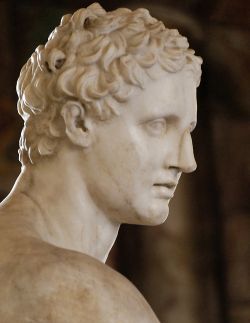
Hephaestus loses out again
In this way Hephaestus hoped to shame and humiliate the lovers in front of all.
In silence, every God stared. Every Goddess turned her face away.
Then Zeus struck the chain-link net so that it parted, and the other gods laughed at the sight of the blustering Hephaestus and the boastful Ares. They also gazed in awe at the beauty of Aphrodite.
Many ribald remarks were bantered back and forth among the Gods as they commented on the relative attractions of the crippled little smith and the dynamic God of War, and for certain, many cruel remarks were made as well.
Hephaestus , Smith of the Gods
Hephaestus may have been ugly to look at, he may have been the butt of cruel jokes and, for all we know, he may have been heartbroken over Aphrodite.
But one thing he could do better, far better, than any of the Olympians. He was a Master Smith and not one of the immortals laughed at his creations,.
Hephaestus became the Smith of the Gods..
Wondrously Wrought
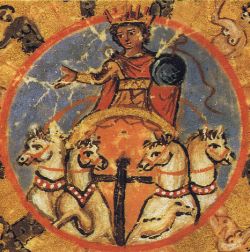
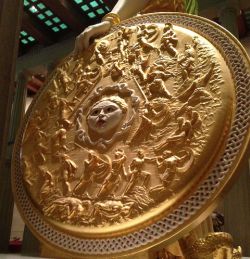
Creations of the Master Smith
The Master Smith forged dazzling accessories for the gods of Olympus. Not one laughed at him then!
Hephaestus was respected for his simply stunning creations, not just pretty artifices for ostentation but also with extremely useful functions and you will surely recognise some of them.
There were the arrows he crafted for Eros (many of us wish they had never been made) and the chariot he built for Helios to carry the sun across the sky each day.
He made a hat of invisibilty for Hades of the Underworld and a winged helmet especially for Hermes, to give speed to this messenger of the gods.
Then there was the replacement shoulder for Pelops, and a girdle for Aphrodite.
He made armour for Achilles to wear during the seige of Troy and who could forget the Aegis of Athena (with the head of Medusa) that was wielded with such chilling effect during that Trojan War?
Even the marvelous dwellings on Olympus are his designs – and we remember him especially for creating Pandora.
Prometheus on the Rock
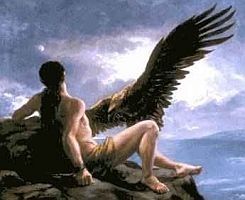
Prometheus
It was all because of Prometheus, and the Fire, that Pandora came into being.
Prometheus had stolen fire from the forge of Hephaestus — the fire which Zeus decreed for the Olympians alone! It was not for insignificant mortals in their dark caves.
Zeus was beside himself with rage. He commanded Hephaestus to shackle Prometheus to the side of a crag, high in the mountains called the Caucasus.
Each day, Prometheus would be tormented by an eagle which tore at his flesh and clawed his liver. Each night, the torn flesh would mend so the eagle could begin anew at the first touch of Dawn.
But the anger of Zeus did not stop there. He intended to give the mortals one more gift and undo all the good Prometheus had done
He commanded Hephaestus to create Pandora.
The Lovely Pandora
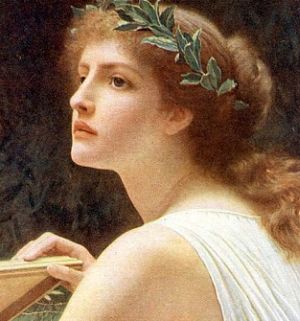
Pandora the All Gifted
Zeus set Hephaestos the task of creating a woman.
Undeterred by such an ambitious project, the Master Smith worked and worked in his forge till he had created a masterpiece. A living, breathing woman, lovely to behold with nothing to tell that she had been created in a forge except for her perfection. He called her Pandora.
The gods rushed to give her a special gift of skill.
It was Aphrodite who made her irresistibly beautiful while Athena taught her how to weave, Hermes, the trickster, taught Pandora to charm and deceive.
Pandora arrives
Now Prometheus, whose name means forethought, had a brother Epimetheus, whose name means afterthought.
It was to Epimetheus that Zeus sent Pandora, arrayed in all her loveliness. Foolishly Epimetheus accepted the maiden and with her a great jar – some say a box or chest – which the gods had also sent along, with instructions for Pandora to never open it.
The inevitable occurs
However one day the inevitable happened and Pandora, consumed with curiosity, lifted the lid to peep in. Before her eyes the room was filled with a black stinking cloud – a cloud full of sickness and suffering, disease and despair, malice, greed, violence, hatred and all the other cruel things that freeze the heart and bring on old age.
She slammed the lid down and turned the key again…keeping only the spirit of hope inside.
Don't open that box!
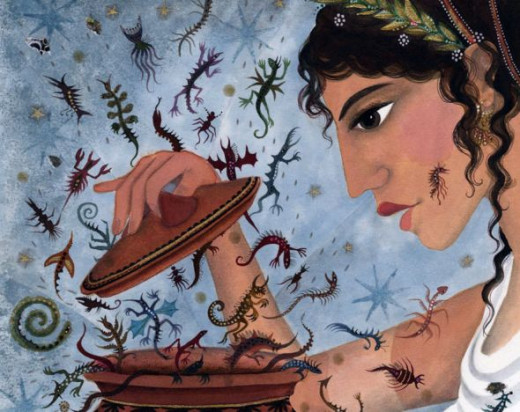
Hephaestus in Rome
The Romans gave the Smith of the Gods the name of Vulcan
He was a much respected god in those days, he had power over the numerous housefires that broke out regularly in the crowded inner city slums of Rome, and many a prayer was sent his way by nervy householders.
His festival, the Vulcanalia, was celebrated on August 23 each year, when the summer heat was at its highest, and the houses and granaries most at risk of fire.
Let's see what you found out
view quiz statisticsThe Smith of the Gods is still with us.
So Hephaestus is the patron of blacksmiths, stonemasons, technology, and volcanoes
It's easier to remember his name as Vulcan rather than Hephaestus, he is closely connected to volcanoes after all.
He still works his forge under Mt Etna and I can testify to that. I've seen, close-up, the results when his fire spills out.
My opinion
Hephaestus is one of the company of Greek Gods that I personally feel is based on a real person. A real person who became a Legend.
Legends are stories based on human heroes who lived in the (relatively) recent past. To earlier people these stories were regarded as true but set in a different period of time, a time less remote, in an historical world.
But legends are told by storytellers, generation after generation of storytellers. The original hero was painted bigger, and exploits and successes executed by others were added to his tale. These apocryphal (of highly questionable authenticity) additions to the stories ensured their survival. We all want a Hero to set things right – and we all relish a good yarn.
What could be more legendary in the Bronze Age than a Master Smith.
© 2014 Susanna Duffy

